
Peja: A Hidden Gem in Kosovo
Peja, located in the western part of Kosovo, is a delightful city nestled between the slopes of the Rugova Mountains and the banks of the Lumbardhi River. With a rich blend of history, culture, and natural beauty, Peja offers a unique experience for travelers looking to explore an off-the-beaten-path destination. One of the city's most striking features is its stunning natural landscape. The Rugova Gorge, a dramatic canyon with towering cliffs and lush greenery, is a must-visit for nature enthusiasts. Hiking and climbing opportunities abound, and the cool mountain air provides a refreshing escape from the summer heat. For a more relaxed experience, visitors can explore the picturesque White Drin Waterfall, a serene spot perfect for picnics and photography. Peja is also home to a number of historical and cultural landmarks. The Patriarchate of Peć, a Serbian Orthodox monastery dating back to the 13th century, is a UNESCO World Heritage Site and a testament to the city's rich religious history. Another notable site is the Ottoman-era Bajrakli Mosque, which showcases the city's diverse architectural heritage. Strolling through the old bazaar, visitors can soak in the vibrant atmosphere and shop for local crafts and souvenirs. Food lovers will find plenty to enjoy in Peja, with its array of traditional Kosovo cuisine. The city is renowned for its delicious flija, a layered pastry cooked over an open flame, and its hearty meat dishes. Local restaurants and cafés offer a warm and welcoming environment to savor these culinary delights. Peja is a city that promises an authentic and enriching travel experience. Whether you're drawn by its natural wonders, historical sites, or culinary offerings, Peja is sure to leave a lasting impression.
Local tips in Peja
- Visit the Rugova Gorge early in the morning to avoid crowds and enjoy the serene environment.
- Try the local specialty, flija, at a traditional restaurant for an authentic taste of Peja.
- Wear comfortable shoes for exploring the old bazaar and historical sites.
- Consider hiring a local guide to learn more about the history and significance of the Patriarchate of Peć.
- Carry cash, as some local shops and eateries may not accept credit cards.
Peja: A Hidden Gem in Kosovo
Peja, located in the western part of Kosovo, is a delightful city nestled between the slopes of the Rugova Mountains and the banks of the Lumbardhi River. With a rich blend of history, culture, and natural beauty, Peja offers a unique experience for travelers looking to explore an off-the-beaten-path destination. One of the city's most striking features is its stunning natural landscape. The Rugova Gorge, a dramatic canyon with towering cliffs and lush greenery, is a must-visit for nature enthusiasts. Hiking and climbing opportunities abound, and the cool mountain air provides a refreshing escape from the summer heat. For a more relaxed experience, visitors can explore the picturesque White Drin Waterfall, a serene spot perfect for picnics and photography. Peja is also home to a number of historical and cultural landmarks. The Patriarchate of Peć, a Serbian Orthodox monastery dating back to the 13th century, is a UNESCO World Heritage Site and a testament to the city's rich religious history. Another notable site is the Ottoman-era Bajrakli Mosque, which showcases the city's diverse architectural heritage. Strolling through the old bazaar, visitors can soak in the vibrant atmosphere and shop for local crafts and souvenirs. Food lovers will find plenty to enjoy in Peja, with its array of traditional Kosovo cuisine. The city is renowned for its delicious flija, a layered pastry cooked over an open flame, and its hearty meat dishes. Local restaurants and cafés offer a warm and welcoming environment to savor these culinary delights. Peja is a city that promises an authentic and enriching travel experience. Whether you're drawn by its natural wonders, historical sites, or culinary offerings, Peja is sure to leave a lasting impression.
When is the best time to go to Peja?
Iconic landmarks you can’t miss
Patriakana e Pejës
Experience the tranquility and historical richness of the Patriakana e Pejës, an architectural gem in the heart of Kosovo's stunning landscapes.
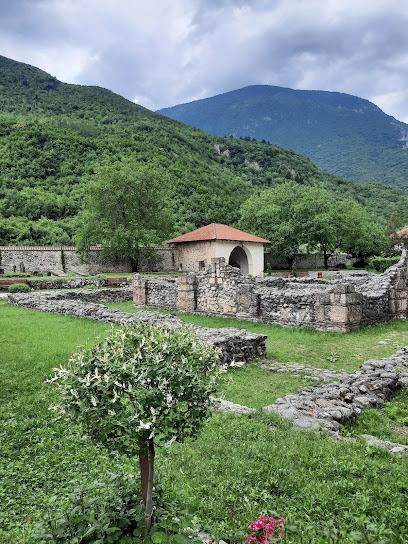
Memorial Complex Adem Jashari
Explore the Memorial Complex Adem Jashari in Prekaz, a poignant tribute to Albanian heritage and the spirit of resilience.
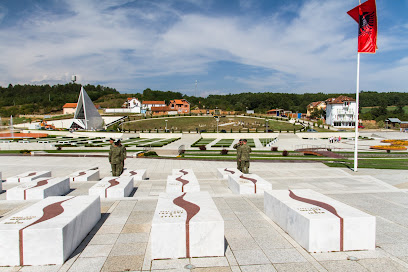
White Drin Waterfall
Experience the breathtaking beauty of White Drin Waterfall, a stunning natural preserve in Albania, perfect for nature lovers and adventure seekers.
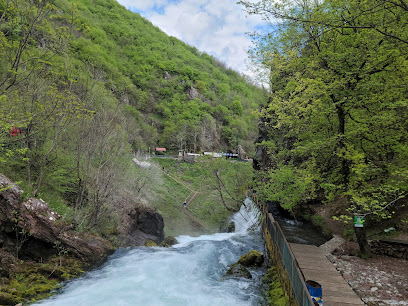
Bazaar of Peja
Explore the Bazaar of Peja, a vibrant market where local culture, tradition, and authentic flavors come together in the heart of Kosovo.
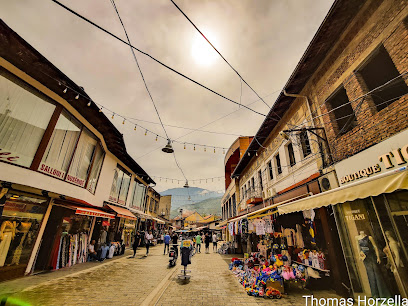
Hotel Kulla e Zenel Beut
Experience authentic Kosovar cuisine and warm hospitality at Hotel Kulla e Zenel Beut in Peja, a perfect blend of comfort and tradition.
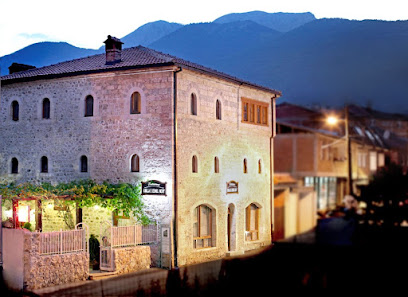
Rugova Valley Tourist Information Center
Explore the Rugova Valley Tourist Information Center, your starting point for unforgettable adventures in stunning natural landscapes and thrilling outdoor activities.
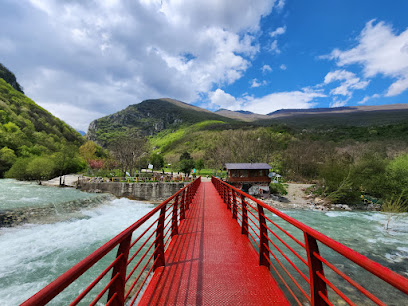
Rugova Canyon viewpoint
Discover the stunning Rugova Canyon viewpoint in Kosovo, where breathtaking landscapes and adventure await amidst nature's beauty.
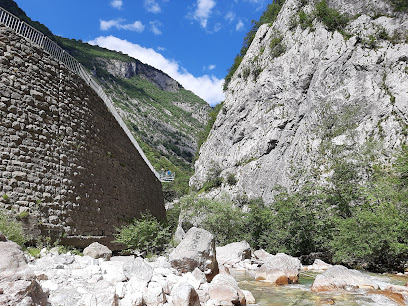
Balkan Natural Adventure
Discover the breathtaking landscapes and rich culture of the Balkans with Balkan Natural Adventure, your gateway to unforgettable experiences in Kosovo.
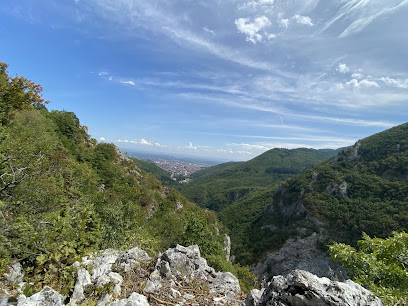
Bazar Mosque of Peja
Explore the enchanting Bazar Mosque of Peja, a historical gem reflecting the rich Islamic heritage and stunning architecture of Kosovo.
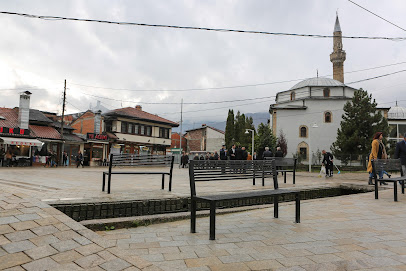
Outdoor Kosovo
Explore the breathtaking landscapes and rich heritage of Kosovo with Outdoor Kosovo, your gateway to unforgettable outdoor adventures.
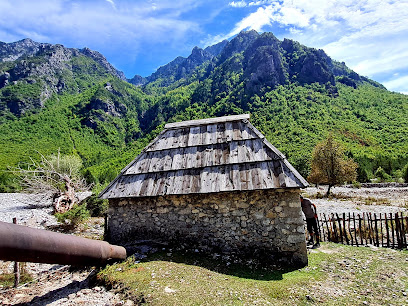
Radaci Cave
Explore Radaci Cave, a stunning natural preserve in Radac, where breathtaking formations and serene landscapes await your discovery.
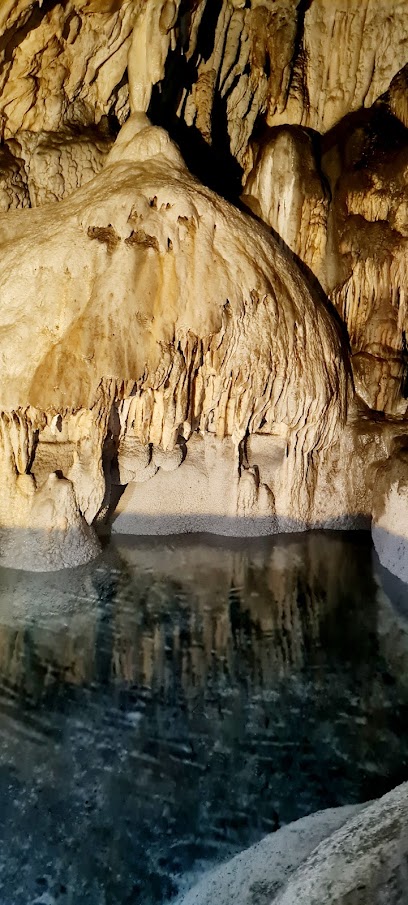
Museum of Peja - Muzeu i Pejës
Explore the Museum of Peja for a glimpse into Kosovo's rich history and culture, featuring archaeological treasures and local artistry in the heart of Peja.
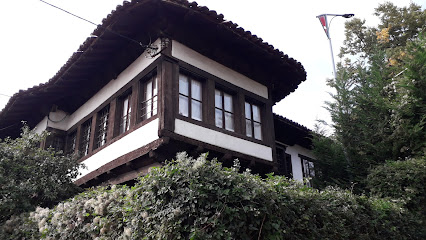
Memoriali Adrian Krasniqi
Explore Memoriali Adrian Krasniqi in Peja, a serene memorial park dedicated to honoring local heritage and cultural history in Kosovo.
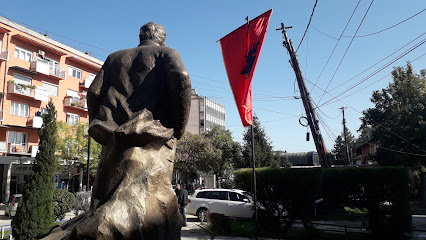
Top Balkan Tours
Discover the Balkans with Top Balkan Tours - Your gateway to breathtaking landscapes, rich culture, and unique adventures in Kosovo.
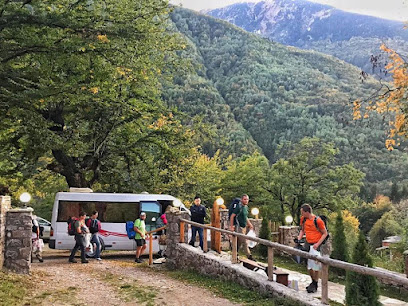
ZipLineMarimangat
Discover the ultimate ziplining adventure at ZipLine Marimangat, where breathtaking views and thrilling experiences await in Peja, Kosovo.

Unmissable attractions to see
Monastery Visoki Decani
Explore the rich history and breathtaking beauty of Visoki Decani Monastery, a UNESCO World Heritage site in the heart of Kosovo.
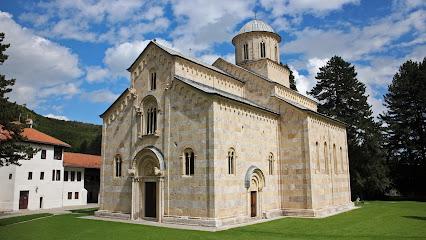
White Drin Waterfall
Explore the breathtaking beauty of White Drin Waterfall, a must-visit nature preserve and tourist attraction in Kosovo's stunning landscape.
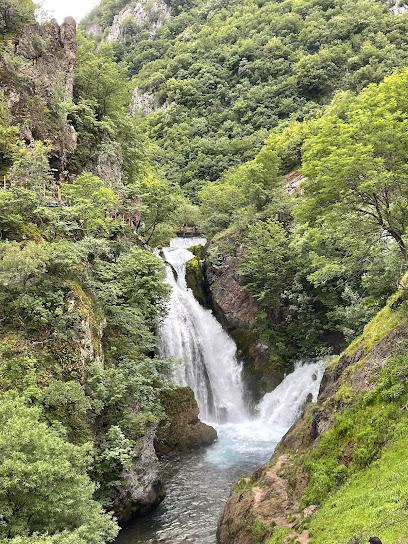
Pećka Patrijaršija
Explore Pećka Patrijaršija, a UNESCO World Heritage site in Kosovo, renowned for its stunning architecture and rich spiritual heritage.
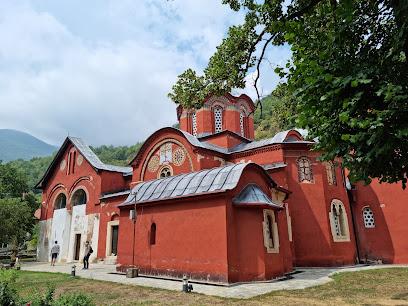
White Drin Waterfall
Explore the enchanting White Drin Waterfall, a natural wonder in Kosovo's breathtaking landscape, perfect for nature lovers and adventure seekers.
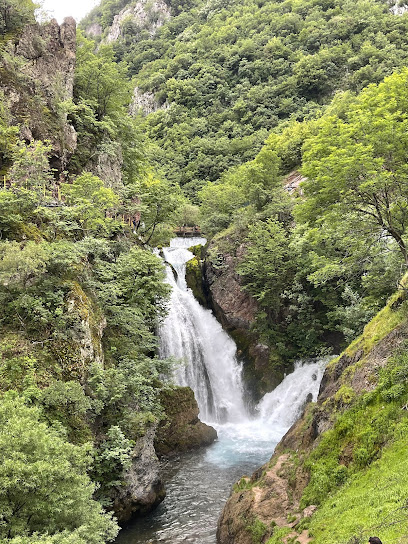
Mirusha Waterfalls
Experience the breathtaking beauty of Mirusha Waterfalls, a stunning natural attraction in Klina, Kosovo, perfect for nature lovers and adventure seekers.
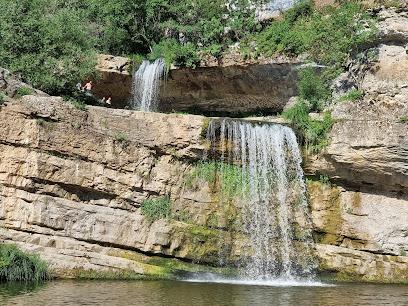
Mirusha Waterfalls
Experience the breathtaking beauty of Mirusha Waterfalls in Kosovo, where nature's artistry meets adventure and tranquility.
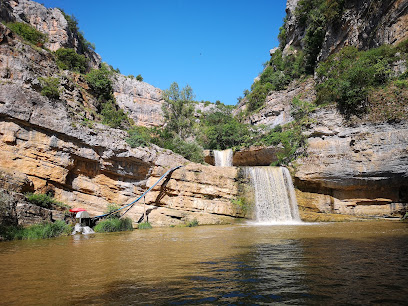
Rugova Valley Tourist Information Center
Explore Rugova Valley's scenic beauty and thrilling outdoor activities at the Tourist Information Center, your starting point for adventure.
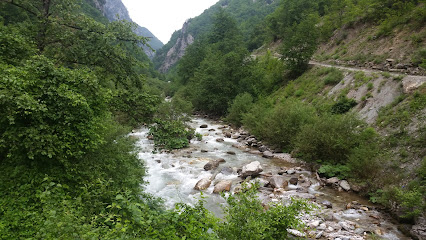
Grebaje Valley
Discover the breathtaking beauty of Grebaje Valley in Montenegro, a perfect destination for nature lovers and adventure seekers alike.
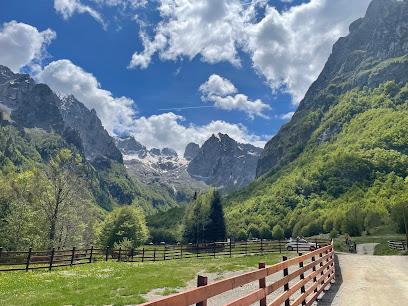
Rugova Canyon viewpoint
Experience the majestic Rugova Canyon viewpoint in Peja, Kosovo, where stunning vistas and serene nature await every traveler.
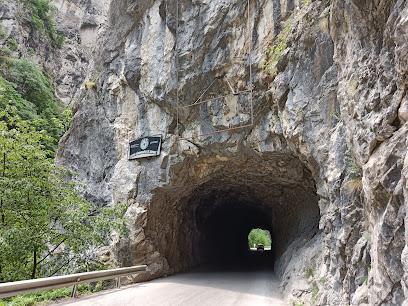
Valbona valley
Discover the untouched beauty of Valbona Valley, a natural paradise in the Albanian Alps with breathtaking landscapes and rich cultural experiences.
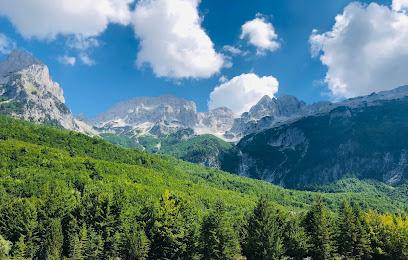
Shpella e Kusarit
Discover the breathtaking Shpella e Kusarit in Gjakova, a stunning cave showcasing nature's artistry and rich geological history.
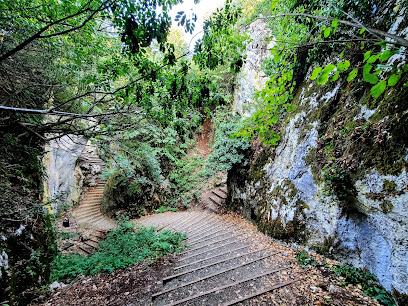
Valušnica
Explore the breathtaking vistas of Valušnica, a stunning mountain peak in Montenegro, perfect for adventurers and nature lovers seeking tranquility.
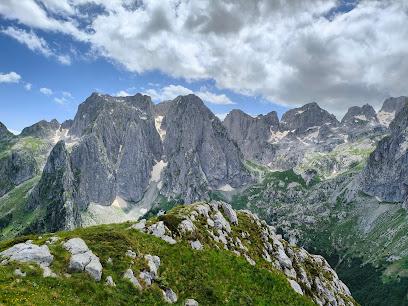
Radaci Cave
Explore the stunning Radaci Cave, a natural wonder in Kosovo showcasing breathtaking geological formations and a rich biodiversity.
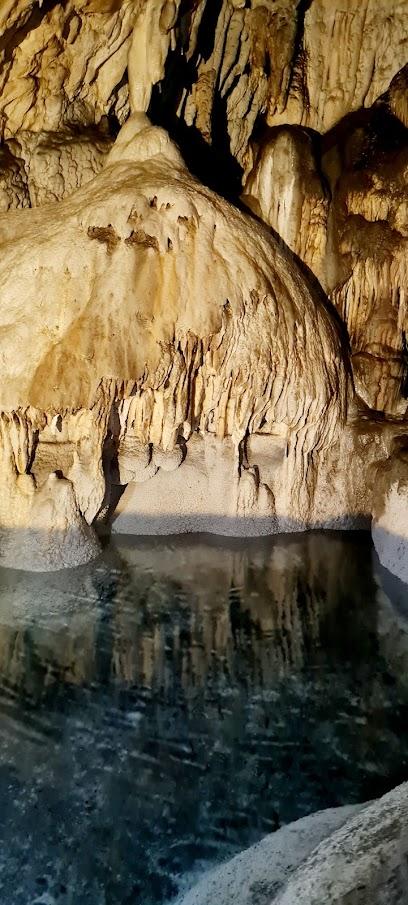
Kinema Jusuf Gervalla
Explore the cinematic treasures of Kinema Jusuf Gervalla, a cultural gem in Peja, showcasing a variety of films in an inviting atmosphere.
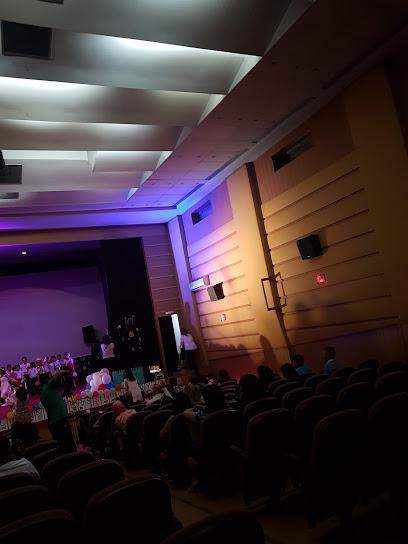
Radaci Cave
Explore the enchanting Radaci Cave, a nature preserve showcasing stunning rock formations and rich biodiversity in a serene setting.
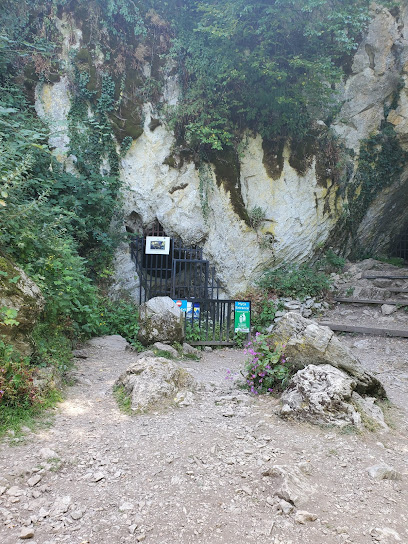
Essential places to dine
Flo's Restaurant
Discover delicious cuisine at Flo's Restaurant in Peja – where local flavors meet international tastes in a cozy setting.
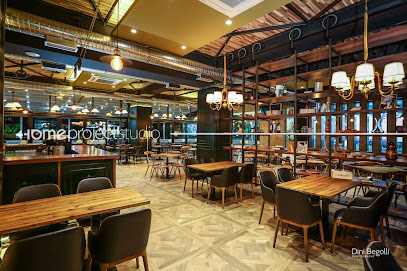
Hotel Kulla e Zenel Beut
Experience authentic Kosovar hospitality at Hotel Kulla e Zenel Beut in Peja, where tradition meets comfort amidst breathtaking landscapes.
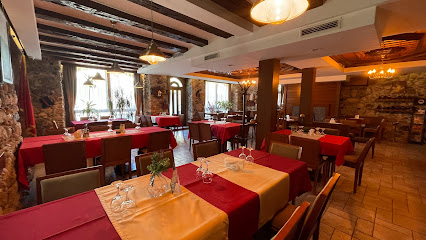
Restaurant Era - Pejë
Experience authentic Kosovar flavors at Restaurant Era in Pejë, where every dish tells a story and every meal is a celebration.
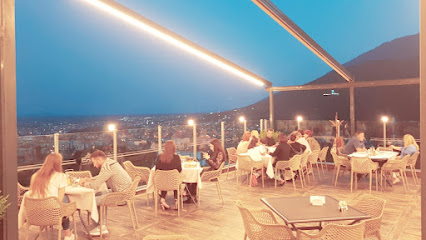
Shtepia Alpike Ranch
Experience organic dining and thrilling adventures at Shtepia Alpike Ranch - your gateway to nature's beauty in Peja.
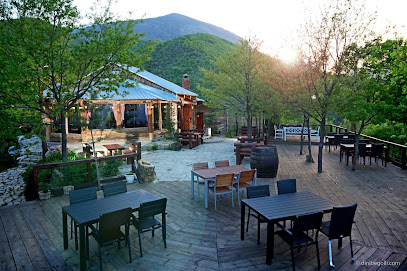
Semitronix HOTEL Pejë
Discover comfort and elegance at Semitronix HOTEL Pejë - where modern hospitality meets local charm.
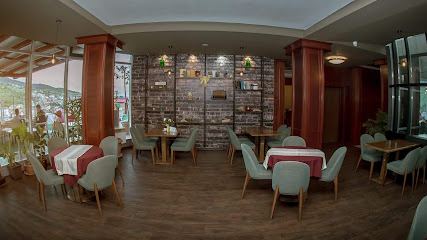
Aroma
Experience authentic Kosovar cuisine at Aroma in Peja – where every meal tells a story.
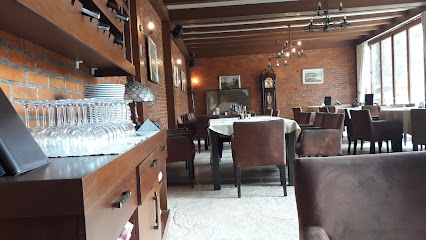
Prince Caffe House
Discover the flavors of Kosovo at Prince Caffe House in Peja – where local cuisine meets warm hospitality.
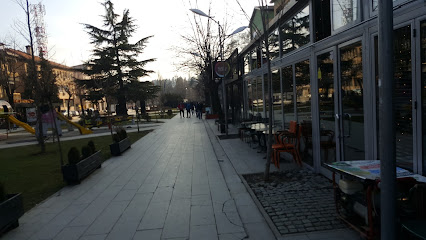
KFC Peja
Discover the flavors of fast food at KFC Peja - where delicious fried chicken meets the charm of Kosovo's beautiful city.
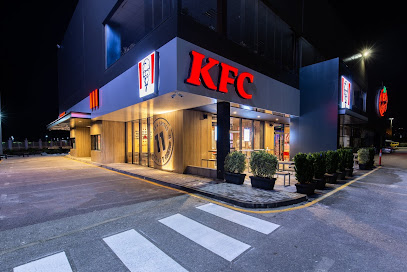
REKORD
Experience culinary delights at REKORD in Pejë: your go-to spot for coffee, desserts, and fast food.
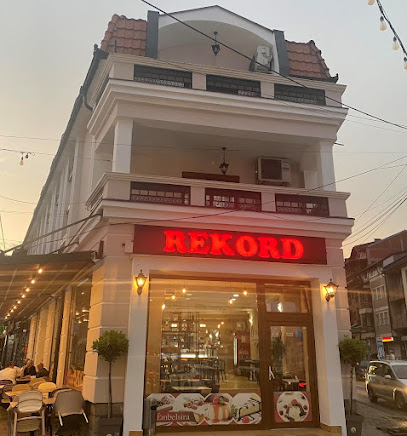
King's
Savor authentic Italian cuisine at King's Restaurant in Pejë - where flavor meets tradition in every dish.
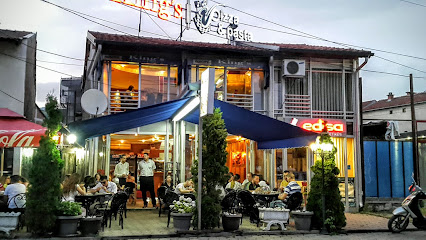
Jaffa Food and Cake
Experience the best of local cuisine at Jaffa Food and Cake - where delightful flavors meet inviting ambiance in Peja.
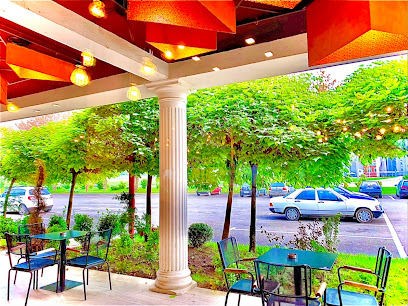
Buquku Grill House
Experience authentic barbecue delights at Buquku Grill House in Peja – where every bite tells a story of flavor.
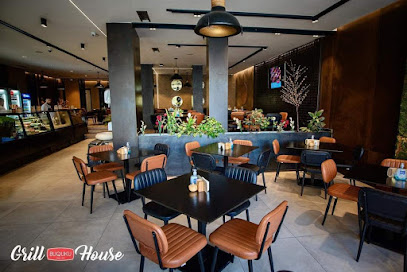
Koha 3
Experience the authentic flavors of Kosovo at Koha 3 in Peja – where tradition meets modern cuisine in a warm and inviting atmosphere.
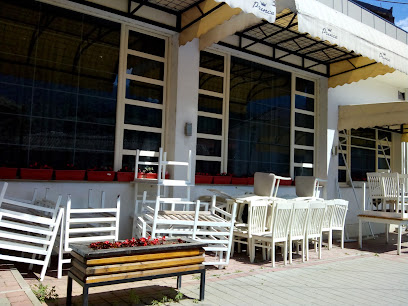
Restaurant Horizont
Experience authentic Kosovar cuisine with stunning views at Restaurant Horizont in Peja.
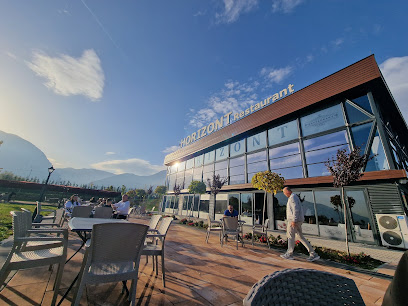
California Park
Experience the best of local cuisine at California Park in Peja - where tradition meets modern dining in a serene setting.
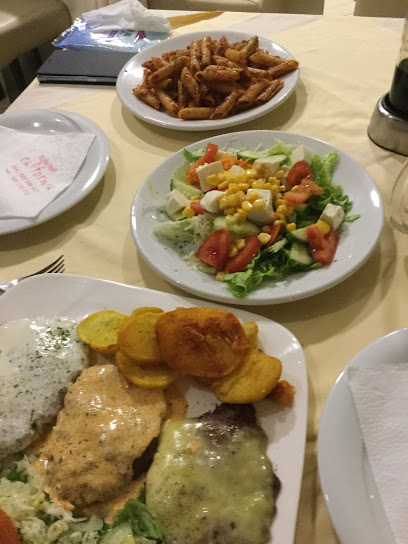
Markets, malls and hidden boutiques
Interex Peje
Interex Peje: A premier supermarket offering a diverse selection of local and international products in the heart of Peja.
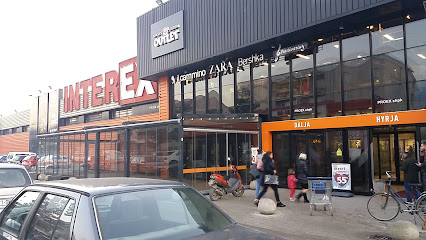
Dio Coffee Shop
Experience the charm of Peja at Dio Coffee Shop, where every cup of coffee tells a story of warmth and community.
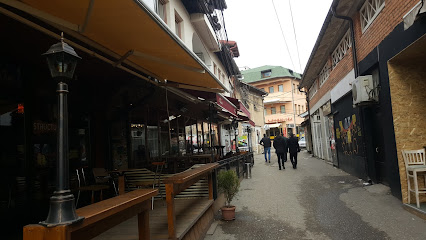
JYSK Pejë
Explore JYSK Pejë, a premier furniture store in Peja, offering unique home furnishings that combine style, quality, and affordability.
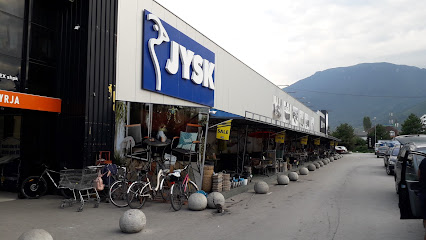
Suna Sport
Discover top-quality sportswear at Suna Sport in Peja, where style meets performance for all your athletic needs.
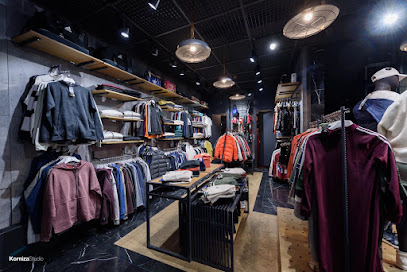
Greta
Explore the vibrant supermarket scene at Greta in Peja, where local flavors meet everyday essentials for every traveler.
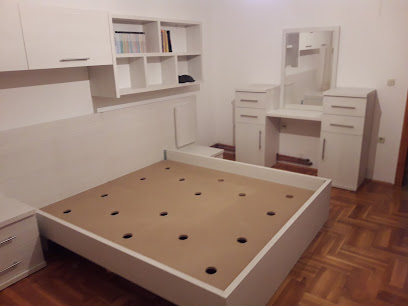
Meridian Express
Explore an array of local and international products at Meridian Express, the go-to supermarket in Peja for all your grocery needs.
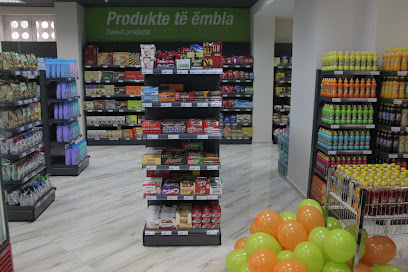
Vjosa's Wardrobe Fashion & Outdoor Shop
Explore Vjosa's Wardrobe in Peja for a unique blend of fashion and outdoor adventure gear, perfect for every stylish traveler.
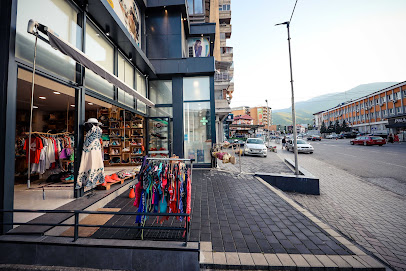
ETC - Elkos Trading Center Peje - 2
Explore the ETC - Elkos Trading Center in Peje for a unique shopping experience blending local culture with modern retail.
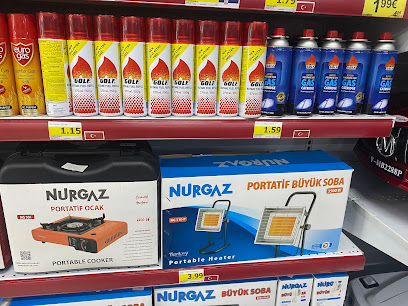
Butiku MUSA-TEKS
Explore Butiku MUSA-TEKS in Peja for the latest women's fashion, where quality meets style in a charming boutique setting.
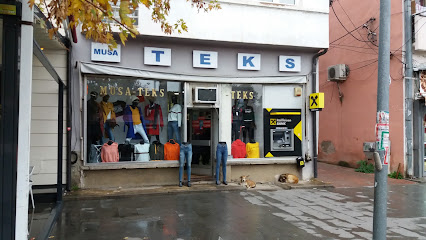
A&M Outlet
A&M Outlet in Peja: Explore a Stylish Collection of Fashionable Clothing at Affordable Prices.
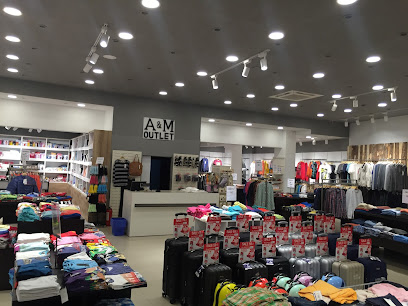
Quella Cake Coffee Shop
Experience the best of Pejë at Quella Cake Coffee Shop, where delectable pastries meet a cozy ambiance for an unforgettable treat.
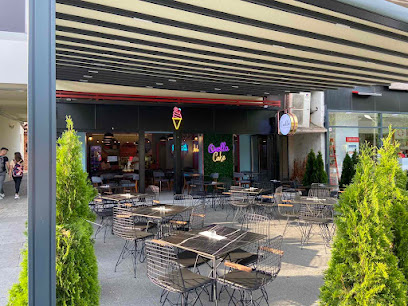
Top Shop
Explore Top Shop in Peja for unique home goods and local treasures that reflect the rich culture of the region.
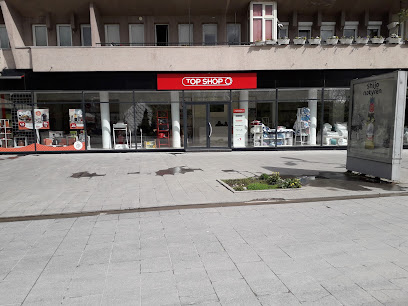
Butiku Shabi
Discover unique fashion treasures at Butiku Shabi, Pejë's premier clothing store, where local trends and quality meet.

Market Arbri MN
Explore the rich culinary heritage of Kosovo at Market Arbri, Pejë's vibrant grocery store filled with local delicacies and fresh produce.
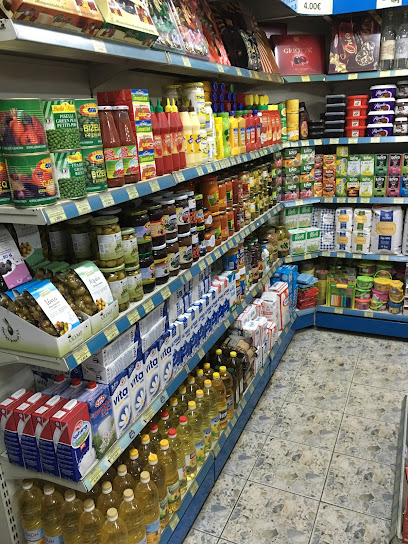
VivaFreshStore
Discover local flavors and essentials at VivaFreshStore, a vibrant grocery store in Peja, where quality meets convenience.
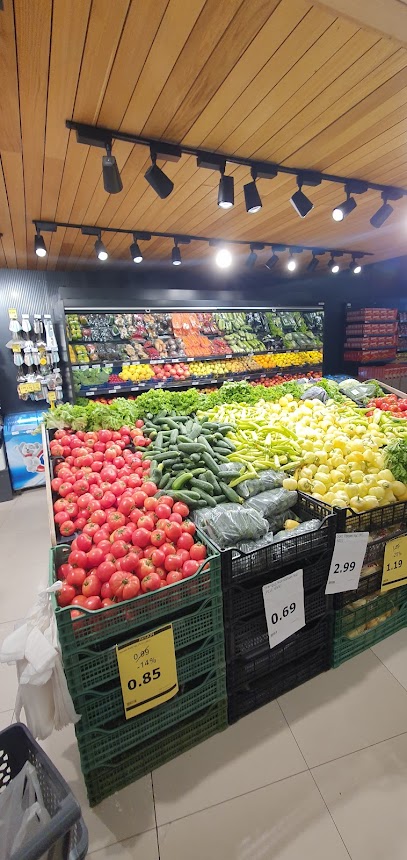
Essential bars & hidden hideouts
Exit Bar
Experience the vibrant atmosphere of Exit Bar in Peja, where local flavors and social vibes come together in a unique setting.
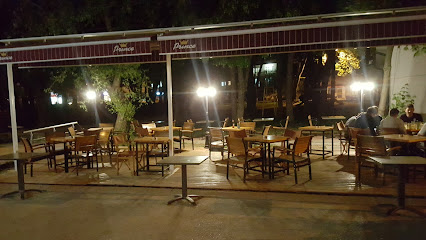
Radio Caffe
Discover the vibrant atmosphere of Radio Caffe in Pejë, where quality drinks and a cozy ambiance await every visitor.
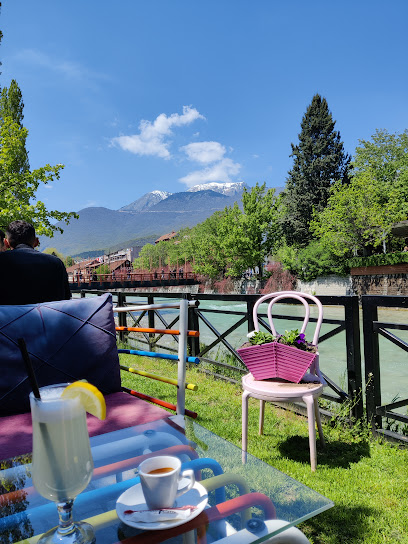
Structure caffe bar
Discover the unique charm of Structure Caffe Bar in Peja, where vintage vibes meet modern refreshment in a welcoming atmosphere.
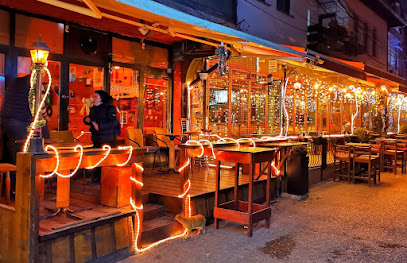
Fox bar
Discover the lively ambiance and delicious offerings at Fox Bar, a hidden gem in the heart of Peje, perfect for relaxation and local culture.
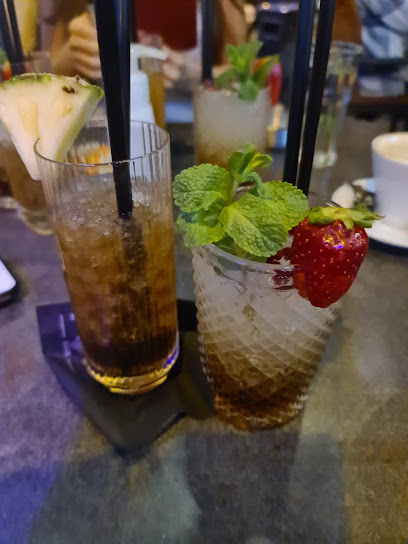
Soprano Lounge Bar
Discover the inviting atmosphere of Soprano Lounge Bar in Peja, where comfort meets style and local flavors await in every sip.
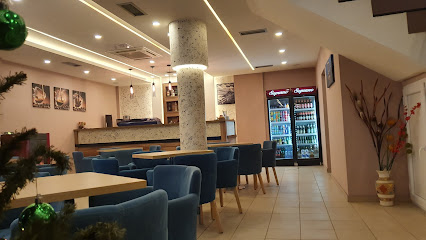
Ignite Lounge
Experience the vibrant atmosphere and delightful drinks at Ignite Lounge, the go-to stand bar in Peja for tourists and locals alike.
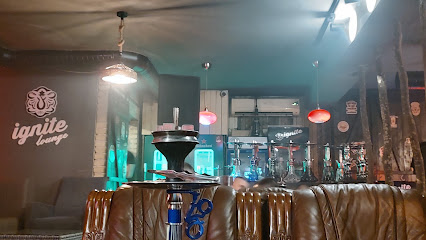
La Bohème Pub
Discover the lively atmosphere of La Bohème Pub in Pejë, where locals and travelers gather for drinks, music, and unforgettable experiences.
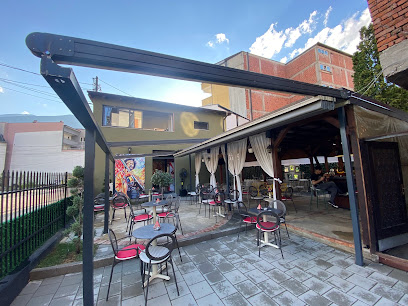
StreetBar
Experience the vibrant nightlife at StreetBar in Peja, where good drinks and great company come together in a lively atmosphere.
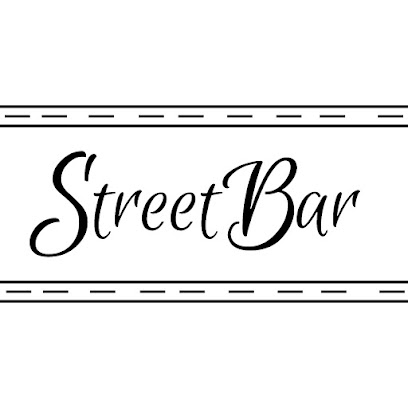
Boa Lounge
Boa Lounge in Peja: A vibrant bar offering an unforgettable nightlife experience with delicious cocktails and a lively atmosphere.

Blue Moon Lounge Bar
Experience the perfect blend of relaxation and local culture at Blue Moon Lounge Bar in Peja, an ideal spot for unwinding with friends and drinks.

DIDI BAR
Experience the vibrant atmosphere and local culture at DIDI BAR, a must-visit bar in Peja for relaxation and enjoyment.
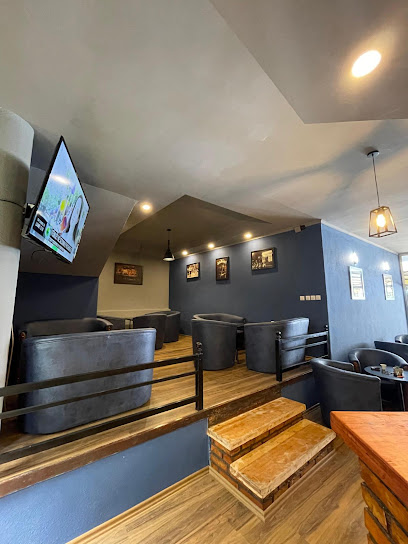
Otto Caffe
Discover the charm of Otto Caffe, a cozy bar in Peja offering a delightful selection of drinks and a warm, inviting atmosphere for all visitors.
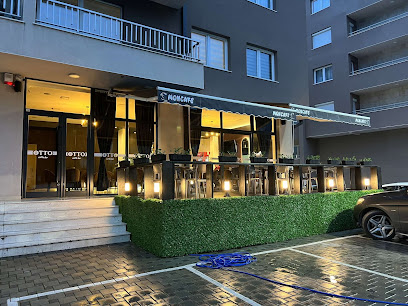
Lodhe tu pushu
Discover Pejë's charm at Lodhe tu pushu, a cozy bar offering a perfect blend of local drinks and warm hospitality.
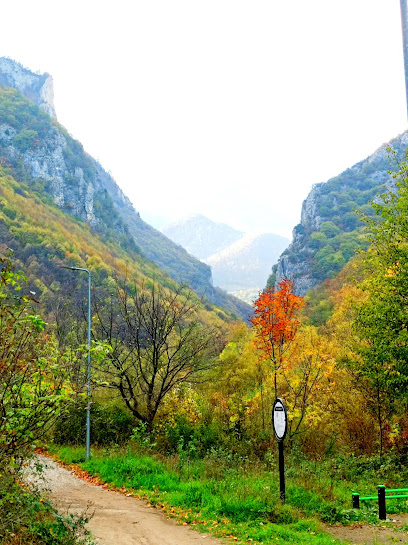
Excellence Lounge & Bar
Discover the elegance of Excellence Lounge & Bar in Peja, where sophisticated drinks meet a vibrant atmosphere for an unforgettable night out.
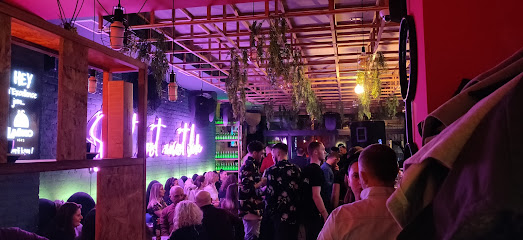
JO'EL CAFFE
Unwind at JO'EL CAFFE in Peja, where local flavors meet a vibrant atmosphere perfect for relaxation and socializing.

Local Phrases
-
- HelloTungjatjeta
[toon-jat-yeh-ta] - GoodbyeMirupafshim
[meer-oo-paf-sheem] - YesPo
[poh] - NoJo
[yoh] - Please/You're welcomeJu lutem
[yoo loo-tem] - Thank youFaleminderit
[fa-le-meen-deh-reet] - Excuse me/SorryMë fal
[muh fal] - How are you?Si jeni?
[see yeh-nee] - Fine. And you?Mirë. Po ju?
[meer poh yoo] - Do you speak English?Flisni anglisht?
[flee-snee ahng-leesht] - I don't understandNuk kuptoj
[nook koop-toy]
- HelloTungjatjeta
-
- I'd like to see the menu, pleaseDo të doja të shihja menunë, ju lutem
[doh tuh doh-ya tuh shee-ya meh-noo-nuh yoo loo-tem] - I don't eat meatUnë nuk ha mish
[oo-neh nook hah meesh] - Cheers!Gëzuar!
[ge-zoo-ar] - I would like to pay, pleaseDo të doja të paguaja, ju lutem
[doh tuh doh-ya tuh pah-gwah-yah yoo loo-tem]
- I'd like to see the menu, pleaseDo të doja të shihja menunë, ju lutem
-
- Help!Ndihmë!
[ndee-muh] - Go away!Shko larg!
[shkoh lahr-g] - Call the Police!Thirr policinë!
[theer poh-lee-tsee-nuh] - Call a doctor!Thirr një doktor!
[theer nyuh dohk-tor] - I'm lostJam humbur
[yam hoom-boor] - I'm illJam i sëmurë
[yam ee suh-moo-ruh]
- Help!Ndihmë!
-
- I'd like to buy...Do të doja të blenia...
[doh tuh doh-ya tuh bleh-nee-ah] - I'm just lookingPo shoh vetëm
[poh shoh veh-tem] - How much is it?Sa kushton?
[sah koosh-ton] - That's too expensiveËshtë shumë i shtrenjtë
[uh-shtuh shoo-muh ee shtrehn-tyuh] - Can you lower the price?A mund të zbritni çmimin?
[ah moon-duh tuh z-bree-tni ch-mee-meen]
- I'd like to buy...Do të doja të blenia...
-
- What time is it?Sa është ora?
[sah uh-shtuh oh-rah] - It's one o'clockËshtë një ora
[uh-shtuh nyuh oh-rah] - Half past (10)Njëzet e gjysmë
[nyuh-zet uh guh-suhm] - MorningMëngjes
[muhn-jes] - AfternoonPasdite
[pahs-dee-teh] - EveningMbrëmje
[uhm-brum-yeh] - YesterdayDje
[djeh] - TodaySot
[soht] - TomorrowNesër
[neh-ser] - 1Një
[nyuh] - 2Dy
[duh] - 3Tre
[treh] - 4Katër
[ka-ter] - 5Pesë
[peh-seh] - 6Gjashtë
[gyahsht] - 7Shtatë
[shtah-tuh] - 8Tetë
[teh-tuh] - 9Nëntë
[nuhn-tuh] - 10Dhjetë
[th-yeh-tuh]
- What time is it?Sa është ora?
-
- Where's a/the...?Ku është një/...?
[koo uh-shtuh nyuh/...] - What's the address?Çfarë është adresa?
[ch-fah-ruh uh-shtuh ah-dreh-sah] - Can you show me (on the map)?A mund të më tregoni (në hartë)?
[ah moon-duh tuh muh troh-goh-nee (nuh hahr-tuh)] - When's the next (bus)?Kur është autobusi i ardhshëm?
[koor uh-shtuh ow-toh-boo-see ee ardh-shuhm] - A ticket (to ....)Një biletë (për ....)
[nyuh bee-leh-tuh (puhr ....)]
- Where's a/the...?Ku është një/...?
History of Peja
-
Peja, historically known as Peć, is nestled in the Rugova Canyon at the foot of the Prokletije Mountains. The area has been inhabited since ancient times, with archaeological evidence pointing to settlement as far back as the Illyrian period. The region's strategic location along vital trade routes facilitated its growth and development through the ages.
-
During the 12th century, Peja came under the control of the Serbian Kingdom. It gained significant prominence in the medieval period, particularly under the rule of King Stefan Nemanja. The construction of the Patriarchate of Peć in the 13th century marked the city as a religious center for the Serbian Orthodox Church. This monastery complex, with its unique frescoes and architecture, remains a historical and cultural landmark.
-
Peja fell under Ottoman rule in the mid-15th century following the fall of the Serbian Despotate. The city was known as İpek in Turkish, becoming an important administrative and commercial hub in the region. The Ottomans left a lasting mark with the construction of mosques, bazaars, and hammams, many of which still stand today. The Qasimi Mosque, built in the 15th century, is one of the city's most notable Ottoman-era structures.
-
The 19th century saw a decline in Ottoman power and the rise of nationalist movements across the Balkans. Peja was a focal point of Albanian resistance against Ottoman rule, playing a significant role in the League of Prizren, an organization formed to defend Albanian territories. The city experienced significant turmoil during the Balkan Wars (1912-1913), changing hands between Ottoman, Serbian, and Montenegrin forces.
-
During World War II, Peja was occupied by Axis forces, first by Italy and later by Nazi Germany. After the war, Peja became part of the Socialist Federal Republic of Yugoslavia. The city underwent industrialization and urban development, with significant investments in infrastructure and education. However, ethnic tensions simmered beneath the surface, setting the stage for future conflicts.
-
The late 20th century was marked by the Kosovo War (1998-1999), during which Peja witnessed significant conflict and destruction. The city was heavily damaged, and many of its residents were displaced. Following NATO intervention and the end of the war, Peja began a slow process of rebuilding. Since Kosovo's declaration of independence in 2008, Peja has been part of the Republic of Kosovo, striving to restore its cultural heritage and foster economic development.
Peja Essentials
-
Peja is located in the western part of Kosovo. The nearest international airport is Pristina International Airport, approximately 70 kilometers away. From Pristina, you can take a bus or a taxi to Peja. The bus journey typically takes around 1.5 to 2 hours. Alternatively, you can rent a car at the airport for a more flexible and scenic drive through the Kosovan countryside.
-
Peja is a relatively small city, and many of its attractions are within walking distance. For longer trips, local taxis and buses are readily available and inexpensive. The bus station in Peja offers connections to other major cities in Kosovo. Renting a bike is also a popular option for exploring the city and its surroundings at your own pace.
-
The official currency in Kosovo is the Euro (EUR). Credit cards are accepted in many hotels, restaurants, and shops, but it is advisable to carry cash, especially in smaller establishments and rural areas. ATMs are available throughout Peja, and you can withdraw cash using international bank cards.
-
Peja is generally a safe destination for tourists. However, it is advisable to take standard precautions. Avoid walking alone at night in unfamiliar areas and keep an eye on your belongings in crowded places. While Peja does not have specific high-crime areas targeting tourists, it is always best to stay vigilant and aware of your surroundings.
-
In case of emergency, dial 112 for immediate assistance. The local police station and medical facilities are available in Peja. It is recommended to have travel insurance that covers medical emergencies. For minor health issues, there are pharmacies in the city where you can purchase over-the-counter medications.
-
Fashion: Do dress modestly, especially when visiting religious sites. Avoid wearing overly revealing clothing. Religion: Do respect local customs and traditions. Always cover your head and dress modestly when entering mosques or churches. Public Transport: Do be respectful and give up your seat to elderly passengers. Don't eat or drink on public transport. Greetings: Do greet people with a handshake. A slight bow of the head is also a sign of respect. Eating & Drinking: Do try local delicacies and accept food offerings graciously. Don't refuse hospitality, as it is considered impolite.
-
To experience Peja like a local, visit the bazaar where you can buy fresh produce, traditional crafts, and local delicacies. Engage with locals, as they are often friendly and willing to share stories about the city's history and culture. Don't miss visiting the Rugova Canyon for hiking and breathtaking views. For a unique experience, take a tour of the Patriarchate of Peć, a UNESCO World Heritage Site, which offers a glimpse into the region's rich religious history.
Trending Landmark in Peja
-
Patriakana e Pejës
-
Memorial Complex Adem Jashari
-
White Drin Waterfall
-
Bazaar of Peja
-
Hotel Kulla e Zenel Beut
-
Rugova Valley Tourist Information Center
-
Rugova Canyon viewpoint
-
Balkan Natural Adventure
-
Bazar Mosque of Peja
-
Outdoor Kosovo
-
Radaci Cave
-
Museum of Peja - Muzeu i Pejës
-
Memoriali Adrian Krasniqi
-
Top Balkan Tours
-
ZipLineMarimangat
Nearby Cities to Peja
-
Things To Do in Gjakova
-
Things To Do in Bajram Curri
-
Things To Do in Mitrovica
-
Things To Do in Vushtrri
-
Things To Do in Prizren
-
Things To Do in Shtime
-
Things To Do in Ferizaj
-
Things To Do in Podujevo
-
Things To Do in Podgorica
-
Things To Do in Gjilan
-
Things To Do in Kamenica
-
Things To Do in Nikšić
-
Things To Do in Lezhë
-
Things To Do in Cetinje
-
Things To Do in Bar









